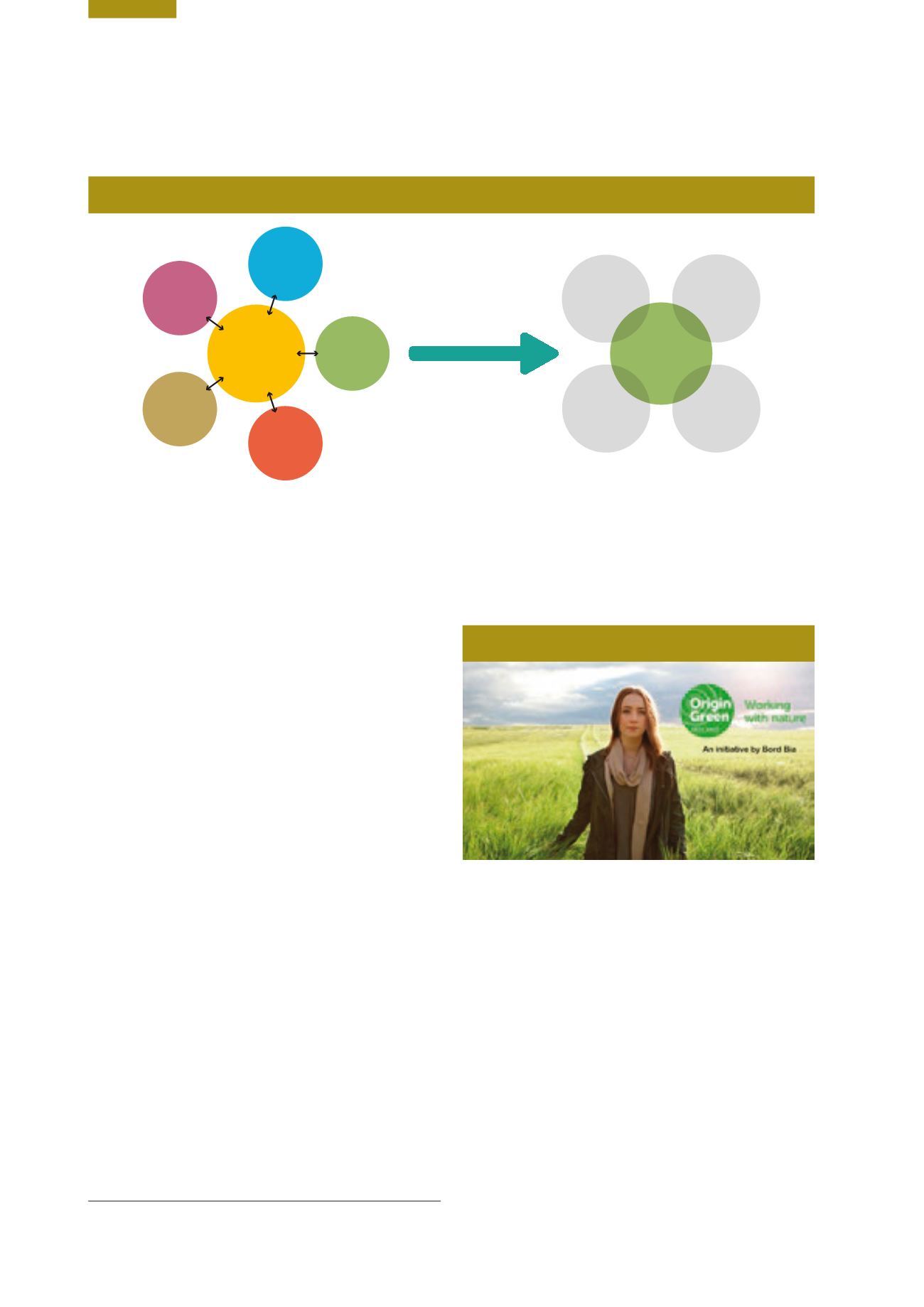

Ireland’s Environment – An Assessment 2016
156
Assessing the Life Cycle of Goods and
Services
Making information available to allow consumers to
make informed choices.
In the coming decade, businesses will increasingly be
required through regulatory approaches to undertake
life cycle assessment for their goods and services and
to adopt eco-label standards. The latter are essential
to support informed consumption choices. Goods and
services that currently incorporate environmentally harmful
substances/practices will be required by future EU-driven
product policy to be eliminated or replaced. In Ireland,
the significant role expected for agricultural and food
production and tourism in national economic recovery
and future growth will require ambitious and monitored
sectoral development plans to ensure that this growth can
be achieved through carbon neutrality and sustainable
production/service processes. The national food sector
development plan, Food Wise 2025, includes a monitoring
and implementation plan that seeks to track and measure
implementation of initiatives and actions, in particular
those dealing with the environmentally sustainable
expansion of the sector.
16
Sector Plans and Policy
Context
Economic Sector Plans for Sustainability
Regular public reporting on the environmental
performance of economic sector plans will be
important for increased accountability and
transparency during implementation.
16
www.agriculture.gov.ie//foodwise2025National plans and programmes also contribute to
progressing decoupling. Bord Bia, through its very
successful Origin Green Programme, has identified the
competitive advantage of marketing sustainable low-
carbon produce to a national and international audience
(Figure 9.7).
Figure 9.7
Origin Green (Source: Bord Bia)
Bord Bia has developed a suite of programmes for its client
primary producers and processors to progress certified
resource-efficient sustainable food production practices.
Major producers, retailers and service providers are also
progressing greener credentials as part of their commercial
strategy (e.g. Green Hospitality, the Musgrave Group’s
Environmental & Social Accountability Policy, Marks &
Spencer’s Plan A, Glanbia’s Performance System, Intel’s
CSR Climate Change & Environmental Policies, Unilever’s
5 Levers of Change). The need for sustainability is strongly
reflected in a number of national sectoral policies and
economic development strategies (e.g. Food Harvest 2020,
Food Wise 2025, Our Ocean Wealth, Education Strategy
for Sustainable Development, National Energy Efficiency
and Renewable Energy Action Plans, Ireland’s Transition
to a Low Carbon Energy Future and the National Plan on
Corporate Social Responsibility).
Figure 9.6
Five Pillars of CSR, and Four Key Elements of the Environment Pillar (Source: DJEI, 2014)
ENVIRONMENT
RESOURCE
EFFICIENCY
ENVIRONMENTAL
PROTECTION
CLIMATE
CHANGE
MITIGATION
RESPECT
FOR
BIODIVERSITY
WORKPLACE
EMPLOYEE
FOCUS
PUBLIC
SECTOR
ENVIRONMENT
MARKETPLACE
COMMUNITY
CSR


















